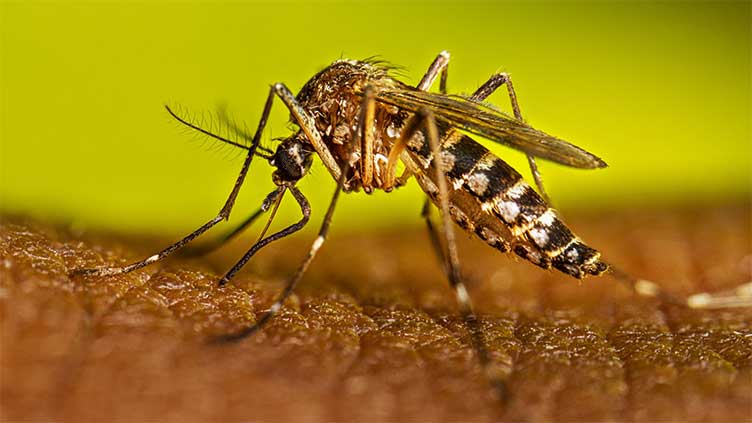New drug turns human blood into mosquito-killing tool

Nitisinone, a drug for rare diseases, kills mosquitoes when present in human blood
(Web Desk) - Controlling mosquito populations is a key strategy in the fight against malaria.
Currently, several approaches are used to reduce mosquito numbers and limit malaria transmission. One method involves the use of the antiparasitic drug ivermectin. When mosquitoes feed on blood containing ivermectin, their lifespan is shortened, which can reduce the spread of the malaria parasite.
However, ivermectin presents challenges. It is toxic to the environment, and its widespread use in both humans and animals to treat parasitic infections raises the risk of drug resistance.
Now, a study published in Science Translational Medicine has identified a promising alternative. Researchers discovered that when people take the medication nitisinone, their blood becomes lethal to mosquitoes, offering a potential new tool for mosquito control and malaria prevention.
The research team tested the mosquitocidal effect of nitisinone on female Anopheles gambiae mosquitoes, the primary mosquito species responsible for spreading malaria in many African countries. If these mosquitoes become infected with malaria parasites, they spread the disease when they feast on a human.
To evaluate how the drug affected the mosquitoes when fed fresh human blood containing nitisinone, researchers collaborated with the Robert Gregory National Alkaptonuria Centre at the Royal Liverpool University Hospital. The center was performing nitisinone trials with people diagnosed with alkaptonuria, who then donated their blood for the study. Those taking nitisinone were found to have blood that was deadly to mosquitoes, which Haines describes as having a “hidden superpower.”
The research team collected data on how the drug was metabolized in peoples’ blood, allowing the team to fine-tune their modeling and provide pharmacological validation of nitisinone as a potential mosquito population control strategy.
Nitisinone was shown to last longer than ivermectin in the human bloodstream, and was able to kill not only mosquitoes of all ages — including the older ones that are most likely to transmit malaria — but also the hardy mosquitoes resistant to traditional insecticides.
“In the future, it could be advantageous to alternate both nitisinone and ivermectin for mosquito control,” Haines said. “For example, nitisinone could be employed in areas where ivermectin resistance persists or where ivermectin is already heavily used for livestock and humans.”


